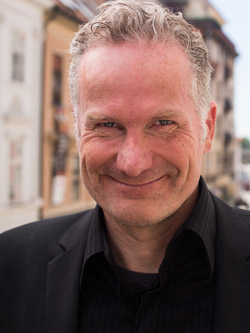The best single website on the internet is the Wikipedia. There is more useful information and less disinformation there than on any other single substantial site.
No surprise Google puts Wikipedia in the top ten for almost everything.
Somewhat of a surprise then that Google has decided to create a pseudo-Wikipedia by the name of Knol.
Right now, it’s an expert authors by invitation affair. But they plan (rather foolishly in my opinion) to open it up to free for fall (think the fall of Squidoo).
We are looking at David vs. Goliath, with Wikipedia in the David corner as the innovator facing off against massive Google. It’s Netscape – Internet Explorer all over again, but this time Google is in the black outfit.
Unbelievably enough, despite being first to the party with great technology and a loyal userbase, Netscape eventually lost round one of the internet wars.
I wonder if Wikipedia will do better.

Alec Kinnear
Alec has been helping businesses succeed online since 2000. Alec is an SEM expert with a background in advertising, as a former Head of Television for Grey Moscow and Senior Television Producer for Bates, Saatchi and Saatchi Russia.
Well lets hope Google only allows experts to write about things or at lest proof read everything. Google isn’t in the black because Wikipedia is useless! it’s a nice idea but anyone can edit it. So if your writing a newspaper or teaching you can’t use it unless you know the subject and can proof read it first which means you need to know the subject. So any decent school or newspaper can’t use it. It’s great if your interested in something and don’t need it to be 100% accurate but other than that useless. If they started getting experts to proof read then Wikipedia would be great but until they do that it’s not a lot of use. Who ever starts something with accurate information for free can not be the bad guy. Wikipedia could be great if they would just gets some experts to proof read things first!
I read Wikipedia pretty regularly, including some topics on which I am already relatively expert.
If it’s really offbase I might add to or correct an article.
Usually the changes stick.
I’d say the issue with Wikipedia content is not that it’s inaccurate but that it can be watered down.
Anything to do with politics, religion, the Middle East will end up being such a tug of war that most of the information will be pulled out of the article by one side or the other. Result not two opposing but coherent viewpoints but vacuous schizophrenia.
Or just white space in many cases.
The expert articles idea is a good one.
But Google allows self-appointed experts so there will still be an absence of coherence.
You are right though – multiple self-appointed experts is different than edit by committee.
I agree with annon, Wikipedia would be very useful for academics or students if the content would be checked. nowadays it is able to provide you with lots of information, and I suppose mostly very accurate information, but unfortunately they are not checked and for academic purposes it is quite useless because you cannot state it as a reference.
I have found out that there are some substitutes which you can use as references e.g. encyclopedia britannica but you have to be signed up usually as a member of some university or other educational institution.